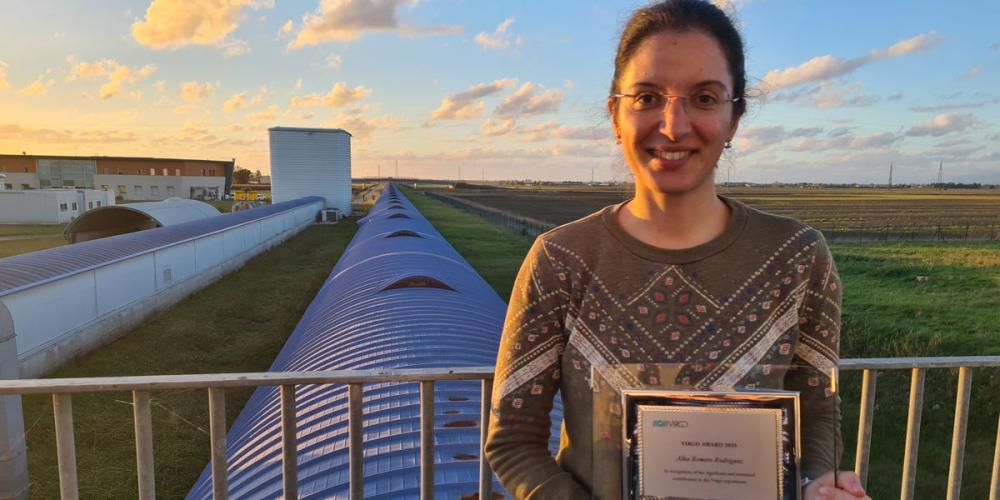
Postdoc researcher Alba Romero-Rodríguez of the Vrije Universiteit Brussel has won the Virgo Award from Virgo, an international consortium that studies gravitational waves. Romero-Rodríguez, from the Department of Physics at VUB’s Faculty of Science, received the prize on 9 November for her doctoral research within the LIGO-VIRGO-KAGRA collaboration at the Institut de Fisica d’Altes Energies at the Universitat Autònoma de Barcelona.
LIGO, the Laser Interferometer Gravitational-Wave Observatory, (and also Virgo) is an advanced instrument designed to detect gravitational waves. It consists of two identical detectors, each with two perpendicular arms, 4km in length. A laser beam is split and reflected back and forth between these arms, with mirrors at the end of each arm sending the beams back to a detector. When a gravitational wave traverses space, it compresses and stretches space. This effect is captured by LIGO’s arms, resulting in changes to their length. A change in the distance between the mirrors creates a pattern of light and dark. By measuring these interference patterns, LIGO can detect very small changes in spacetime caused by passing gravitational waves. This allows scientists to obtain information about the origin and nature of the source of the waves, such as merging black holes or neutron stars.
Since it was commissioned in 2015, LIGO has made several historic detections of gravitational waves, opening a new window for scientists to observe the universe. Romero-Rodríguez’s contribution consists of refining measurement instruments and characterizing environmental noise that could be due to seismic motion, scattered light, magnetic couplings, among other things. Currently, she also contributes to the search for a gravitational wave background. “During my PhD, I had the privilege of immersing myself in the fascinating world of Virgo, working with an extraordinary community of researchers who never ceased to inspire me. I consider myself truly fortunate to be continuing this journey at VUB and to be working with remarkable researchers who not only contribute to the advancement of science but also make the daily pursuit of knowledge a joyous experience,” she says.